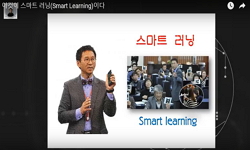디지털 기술의 발전과 코로나19의 영향으로 기업의 혁신과 조직문화가 변화하고 있으며, HRD(Human Resource Development) 분야에서 스마트 러닝의 중요성이 부각되고 있다. 본 연구에서는 HRD 담당자...
http://chineseinput.net/에서 pinyin(병음)방식으로 중국어를 변환할 수 있습니다.
변환된 중국어를 복사하여 사용하시면 됩니다.
- 中文 을 입력하시려면 zhongwen을 입력하시고 space를누르시면됩니다.
- 北京 을 입력하시려면 beijing을 입력하시고 space를 누르시면 됩니다.

HRD 관점에서 기업의 스마트 러닝 성공을 위한 탐색적 연구 = An Exploratory Study on Organizational Smart Learning Success from an HRD Perspective
한글로보기https://www.riss.kr/link?id=A108910934
- 저자
- 발행기관
- 학술지명
- 권호사항
-
발행연도
2023
-
작성언어
-
-
주제어
스마트 러닝 ; 인적자원개발 ; 하이브리드 근무 ; 기업 교육 ; 계층화 분석법 ; Smart Learning ; Human Resource Development ; Hybrid Word ; Corporate Education ; AHP
-
KDC
300
-
등재정보
KCI등재
-
자료형태
학술저널
-
수록면
219-235(17쪽)
- DOI식별코드
- 제공처
-
0
상세조회 -
0
다운로드
부가정보
국문 초록 (Abstract)
디지털 기술의 발전과 코로나19의 영향으로 기업의 혁신과 조직문화가 변화하고 있으며, HRD(Human Resource Development) 분야에서 스마트 러닝의 중요성이 부각되고 있다. 본 연구에서는 HRD 담당자의 관점에서 스마트 러닝을 구성하는 요인들의 상대적인 중요성을 밝히는 것을 목적으로 하였다. 선행 문헌 검토를 통해 현 상황에 가장 부합하는 스마트 러닝 계층 및 요인을 도출하고, AHP 방법을 활용하여 해당 요인의 상대적 중요도를 파악하였다. 결과적으로 1계층 요인에서는 ‘학습 활동’, ‘교육 활동’, ‘학습 콘텐츠’, ‘평가 방법 및 평가’, ‘학습 시간 및 공간’ 순으로 중요도가 확인되었다. 2계층 전체 요인에서는 ‘교육 전략’, ‘학습 결과’, ‘학습 과업’, ‘학습 목표’, ‘학습 지원’이 상위 5위에 나타나는 요인으로 확인되었다. 본 연구 결과는 스마트 러닝 개념을 재정립하고, 추후 연구를 위한 학술적 프레임워크를 제안한 점에서 의의를 가진다. 또한, 실무적으로는 HRD 담당자들이 스마트 러닝을 개선하고 향상시키기 위해 어떤 요인에 주력해야 하는지에 대한 유용한 정보를 제공하는데 기여할 것으로 기대된다.
다국어 초록 (Multilingual Abstract)
The advancement of digital technology and the impact of COVID-19 have brought about changes in corporate innovation and organizational culture, thereby highlighting the significance of Smart Learning in the field of HRD (Human Resource Development). T...
The advancement of digital technology and the impact of COVID-19 have brought about changes in corporate innovation and organizational culture, thereby highlighting the significance of Smart Learning in the field of HRD (Human Resource Development). This trend has led to an increased interest in personalized Smart Learning among employees due to the growth of hybrid work and the widespread adoption of smart work practices. This study aimed to illuminate the relative importance of the factors that constitute Smart Learning from the perspective of HRD practitioners. Through a review of prior literature, Smart Learning hierarchy and factors most fitting to the current context were identified, and their relative importance was determined using the AHP method. Consequently, in the first-tier factors, importance was confirmed in the order of ‘Learning Activities’, ‘Teaching Activities’, ‘Learning Content’, ‘Assessment and Evaluations’, and ‘Learning Time and Space’. At the second-tier encompassing all factors, ‘Pedagogical Strategy’, ‘Learning Results’, ‘Learning Tasks’, ‘Learning Goal’, and ‘Learning Support’ emerged within the top five factors. These findings are significant in that they redefine the concept of smart learning and propose an academic framework for future research. Additionally, from a practical perspective, it is anticipated that this study will contribute valuable insights for HRD practitioners, aiding them in focusing on which factors to prioritize for enhancing and advancing Smart Learning initiatives.
동일학술지(권/호) 다른 논문
-
- 한국지식경영학회
- 김범석 ( Kim Bum Seok )
- 2023
- KCI등재
-
소방관의 화재대응의사결정요인에 관한 주관성 연구: Q방법론을 활용한 조사를 중심으로
- 한국지식경영학회
- 김정훈 ( Junghoon Kim )
- 2023
- KCI등재
-
비자발적으로 참여하는 소통프로그램만족도가 공감능력과 조직몰입에 미치는 영향에 관한 연구
- 한국지식경영학회
- 신수행 ( Shin Soo Haeng )
- 2023
- KCI등재
-
- 한국지식경영학회
- 김현정 ( Hyeonjeong Kim )
- 2023
- KCI등재




 ScienceON
ScienceON KISS
KISS






